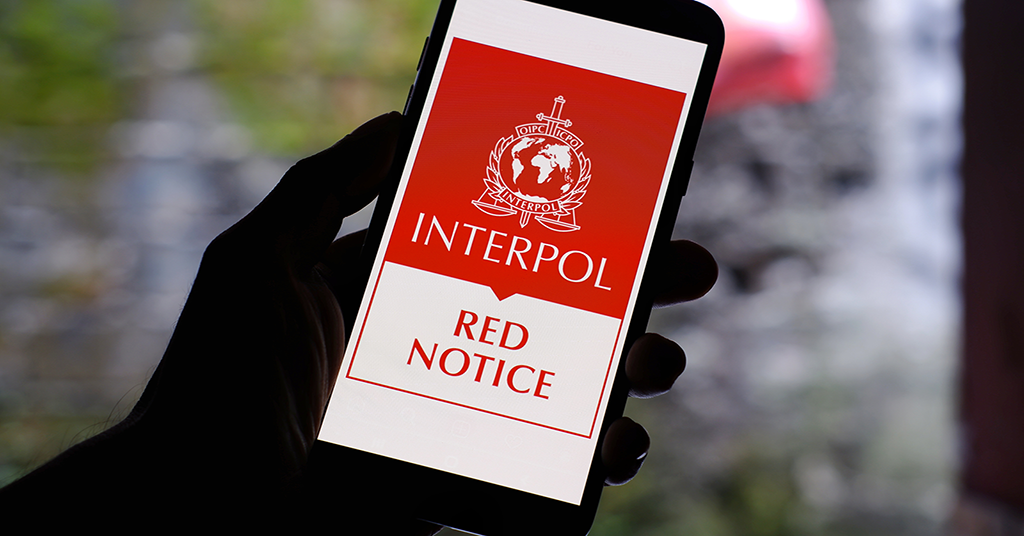IInternational law has become the foundation for cooperation between states in matters of criminal prosecution, especially in cases where the crime has a transnational nature. One of the key tools for coordination is Interpol's red notice. This mechanism is used to share information about individuals wanted for committing criminal offences. For travellers, international businessmen, or individuals under legal pressure, knowing how to check an Interpol red notice and what to do if you are subject to one is extremely important.

An Interpol Red Notice is an official request from the law enforcement agencies of one country to Interpol, asking for assistance in locating and provisionally arresting an individual pending possible extradition. It is not an arrest warrant in the legal sense, but it signals to member countries of Interpol the need to detain the suspect. According to Article 82 of the Interpol Constitution, such notices are issued only at the request of competent authorities and must be accompanied by sufficient evidence proving the individual's involvement in criminal activities.
A Red Notice operates within the framework of international law and is closely linked to extradition procedures, which are governed by multilateral and bilateral agreements. For instance, the European Convention on Extradition and the UN Convention against Transnational Organized Crime establish procedures for cooperation between states on such matters.
INTERPOL, short for the International Criminal Police Organization, is a global body that facilitates cooperation and collaboration among law enforcement worldwide. Headquartered in Lyon, France, INTERPOL supports police forces in its 195 member countries by providing secure communication channels, databases, and expert assistance to combat transnational crime. Through tools like notices and alerts, INTERPOL helps track criminals, share critical information, and coordinate efforts to maintain global safety and security. A Red Notice is typically issued at the request of governments for the purpose of locating individuals suspected of serious criminal offences, such as:
However, INTERPOL cannot compel the law enforcement authorities in any country to arrest someone who is the subject of a Red Notice.
A Red Notice issued by INTERPOL is an alert to law enforcement agencies worldwide, seeking the location and potential arrest of a person pending extradition, surrender, or similar legal action. While it is not an international arrest warrant, a Red Notice serves as a significant signal that an individual is wanted for prosecution or to serve a sentence. If you or someone you know suspects they might be the subject of such a notice, there are two main methods to verify this: checking INTERPOL’s website and requesting information from the Commission for the Control of INTERPOL’s Files (CCF).
One of the most straightforward methods to check for an active Red Notice is by visiting INTERPOL’s official website. INTERPOL maintains a publicly accessible database where a selection of Red Notices are published. Here’s how you can go about this:
It’s important to note that not all Red Notices are made public. INTERPOL may keep certain notices confidential at the request of member countries, especially if their disclosure could jeopardize ongoing investigations or personal safety. If the search yields no results, it does not necessarily mean that there is no Red Notice against the individual; the information may be restricted to law enforcement, and that’s when you should use the second method.
For a more thorough check or if there is no public listing found, another option is to request information directly from the Commission for the Control of INTERPOL’s Files (CCF). The CCF is an independent body responsible for ensuring that the processing of personal data by INTERPOL is done in compliance with its rules. Here’s how to proceed:
The response from CCF may take several weeks or months. They will notify the individual of their findings and whether any data, such as a Red Notice, exists. If such data is found, they will inform you of its nature and provide guidance on next steps.
The Commission for the Control of INTERPOL’s Files (CCF) is an independent body within INTERPOL responsible for overseeing and ensuring that the organization processes personal data in compliance with its own rules and international standards. This commission plays a critical role in safeguarding individual rights related to the information stored and managed by INTERPOL.
Upon discovering the presence of a notice or suspecting that one might be issued against you, you must take immediate action. Cooperate with law enforcement authorities is essential during the legal process. The situation calls for urgent legal advice, as Interpol notices can have a significant impact on your freedom of movement and professional activities.
The first and most crucial step is to consult a qualified Interpol lawyer specialising in international criminal cases and extradition. An expert in international law will help you assess how legitimate the red notice is, as well as explain what steps can be taken to protect your rights. This is particularly important if the notice has been issued for political reasons or as a result of abuse of the international search system. International treaties, such as the International Covenant on Civil and Political Rights (ICCPR), protect against unlawful persecution at an international level, which can also be used in your defence.
If you suspect that a notice has been issued concerning you, but it is not publicly accessible, you can submit an official request for access to your data through the Commission for the Control of INTERPOL's Files (CCF). This body is responsible for reviewing the data stored in INTERPOL's systems and ensures that human rights are upheld during the data processing procedure. In your request, you can demand clarifications regarding the basis for the search and challenge the legitimacy of the red notice itself.